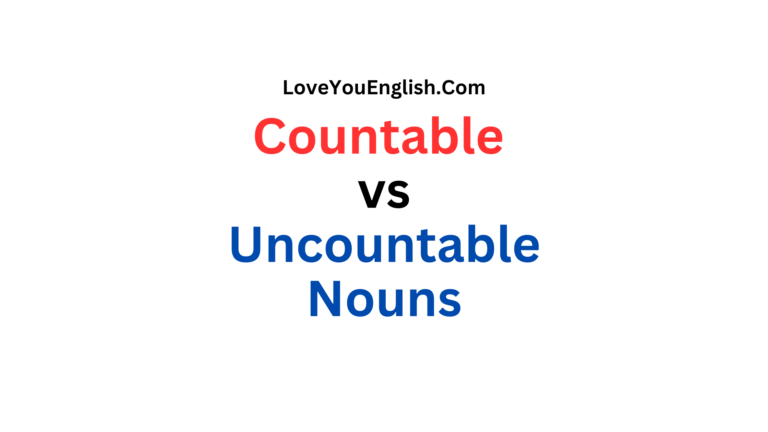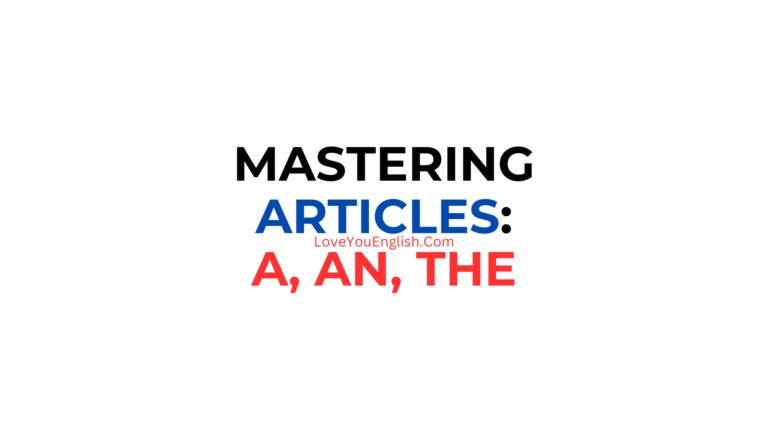What Are Irregular Verbs? A Simple Explanation
What Are Irregular Verbs? A Simple Explanation
Hello everyone,
Verbs are one of the main parts of speech that make up sentences in English. They describe an action, occurrence, or state of being.
For example, words like run, eat, think, and be are all verbs.
Most English verbs follow a consistent set of rules when conjugated into different tenses and forms.
The verb “walk” follows these standard rules:
Present tense: I walk, you walk, he/she/it walks
Past tense: I walked, you walked, he/she/it walked
Present participle: walking
Past participle: walked
However, there is a group of verbs that don’t follow these standard rules of conjugation.
These are called irregular verbs.
With irregular verbs, the past tense and/or past participle forms are different than just adding “-ed” to the base form.
Consider the verb “go”:
Present tense: I go, you go, he/she/it goes
Past tense: I went, you went, he/she/it went
Present participle: going
Past participle: gone
As you can see, the past tense “went” and past participle “gone” don’t follow the standard “-ed” rules. This makes “go” an irregular verb.
Some other common irregular English verbs include:
See – saw – seen (past tense – past participle)
Sing – sang – sung
Break – broke – broken
Eat – ate – eaten
Fly – flew – flown
Buy – bought – bought
There are many more, but you get the idea – the past forms don’t follow the regular “-ed” pattern.
Why Are Some Verbs Irregular?
You may wonder – why do we even have irregular verbs?
Why can’t English just have one set of simple conjugation rules?
The main reason is that many of our irregular verbs are quite old, dating back hundreds of years to the roots of English in Old English and Germanic languages.
Over time, language changes, but vestiges of old forms remain – like these irregular past tense conjugations.
Additionally, some linguists argue that irregular forms developed as easier ways to indicate past tense in frequently used verbs.
It’s easier to change one vowel sound (like sing to sang) than to tack on an extra “-ed” syllable.
While irregular verbs may seem confusing at first, over time using their forms becomes second nature through repetition and practice.
Using Irregular Verbs Correctly
The key thing with irregular verbs is to simply memorize their irregular past tense and past participle forms.
There’s no shortcut – you just have to study them and get used to using the right form.
In a standard sentence, the past tense form is used with a subject:
“I went to the store yesterday.”
“She sang at the concert last night.”
The past participle form is used to form the present perfect and past perfect tenses:
“I have gone to the store already.” (present perfect)
“They had broken the vase before we arrived.” (past perfect)
The past participle is also used after helping verbs like “have” or “had.”
It’s very common for students to mix up the irregular past tense and past participle forms.
For example:
“I have went to the store” (incorrect)
“I had sang at the concert” (incorrect)
The correct versions are:
“I have gone to the store.”
“I had sung at the concert.”
So be careful to use the right form in the right place when conjugating irregular verbs.
Irregular Verbs in Formal vs Informal English
In general, you want to make sure you use the proper irregular forms in formal writing like essays, emails, reports, etc.
Using incorrect forms can make you sound uneducated.
However, in very casual speech, native speakers sometimes use incorrect irregular forms.
For example:
“I had ran around all day” instead of “I had run around all day.”
Or they might “regularize” an irregular verb, using the standard “-ed” ending:
“I shoulda knowed better” instead of “I should have known better.”
While this is common in extremely informal contexts, you’ll want to avoid it in anything but very casual conversation.
Tips for Learning Irregular Verbs
Irregular verbs can be tricky, especially for non-native English learners.
Here are some tips that can help:
1) Study common irregular verbs using flashcards or apps that drill you on the different forms. Getting repetitive practice is key.
2) Watch out for tricky spellings in the irregular forms, like “bought” or “sought.” These can catch you off guard.
3) Pay attention when you see or hear irregular verbs used properly by native speakers and writers.
4) Don’t get too hung up on trying to memorize every single irregular verb. Focus on the most common ones first.
5) If you’re struggling with an irregular verb form, look it up! Use a dictionary to confirm the proper conjugation.
With time and practice, using irregular verb forms will become second nature.
And correctly using these can help make your English sound more natural and fluent.
Let’s practice a few:
What’s the past participle of “write”? (written)
What’s the past tense of “speak”? (spoke)
What’s the past participle of “grow”? (grown)
See – mastering irregulars just takes some repetition and usage.
Keep practicing, and in no time, they’ll start feeling regular to you!
_____________________
Check out these awesome grammar books I recommend:
High School English Gram & Comp – by WREN & MARTIN
OXFORD ENGLISH GRAMMAR COURSE ADVANCED WITH KEY (WITH EBOOK)






